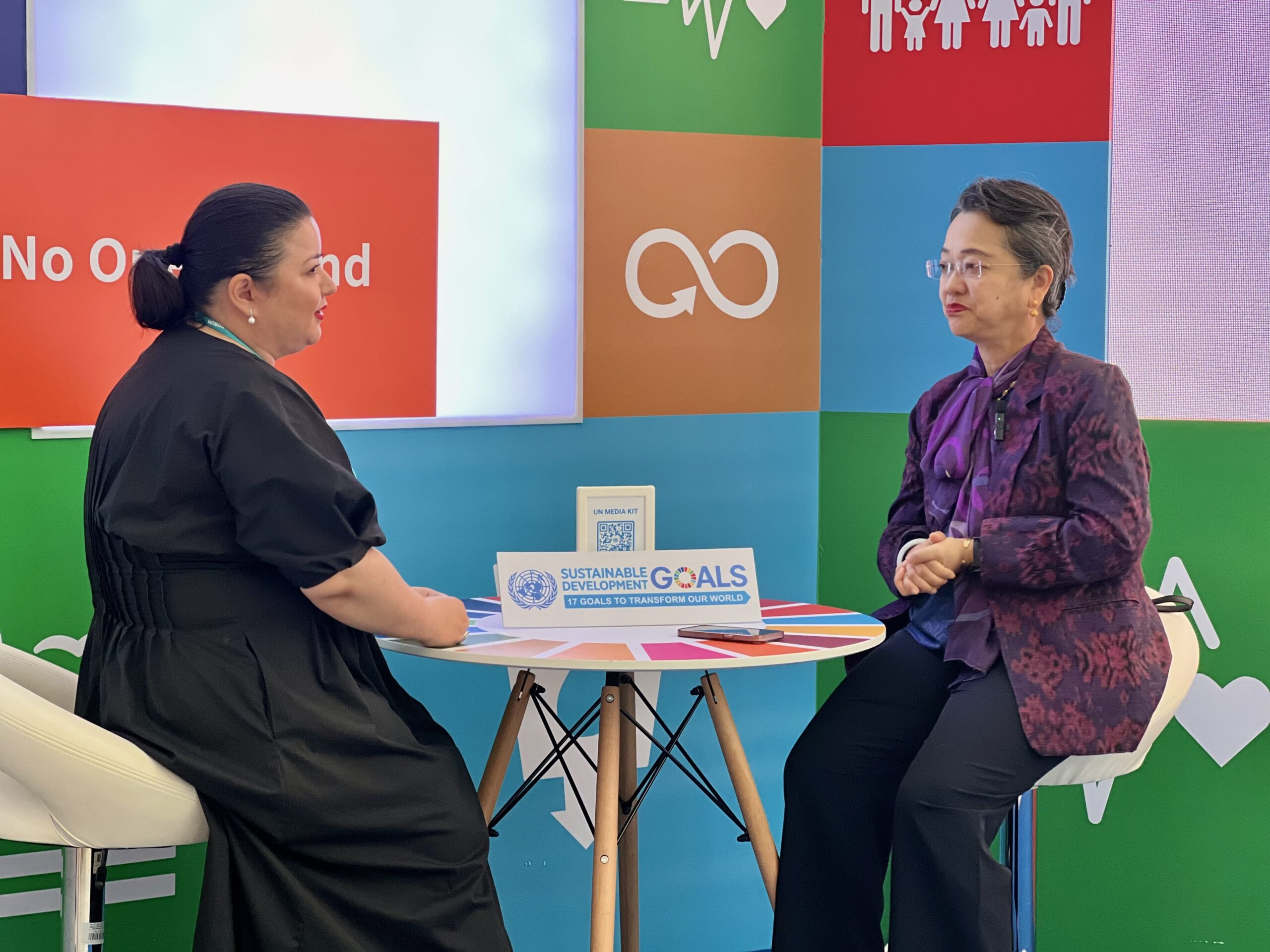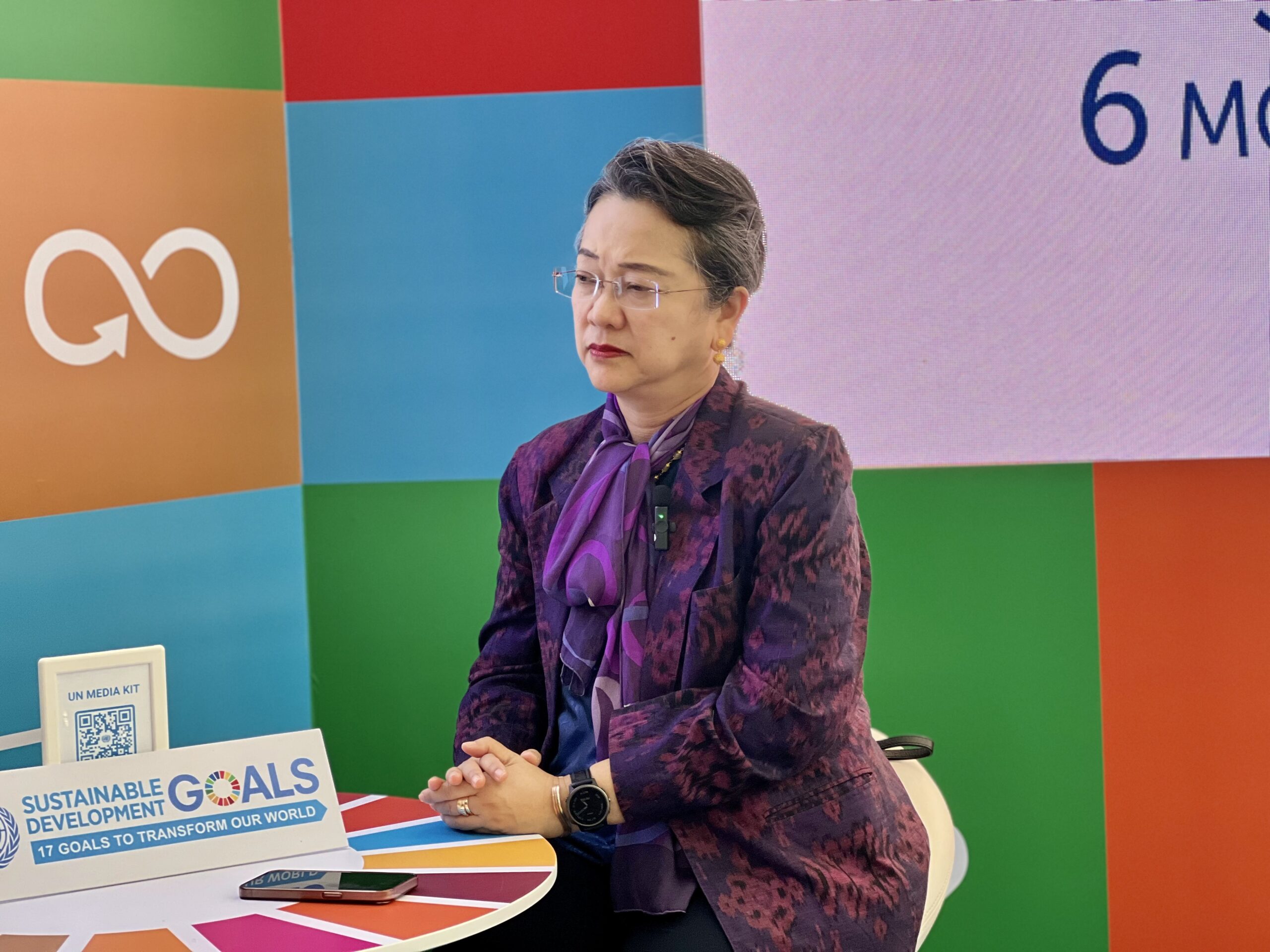ASTANA — Armida Salsiah Alisjahbana, Under-Secretary-General of the United Nations Executive Secretary of the Economic and Social Commission for Asia and the Pacific (ESCAP), shed light on the priorities of cooperation between UN and Kazakhstan in an interview with The Astana Times on the sidelines of the Astana International Forum (AIF) on June 8-9. Digitalization of trade and the implementation of Sustainable Development Goals (SDGs) are among them.

Photo credit: The Astana Times.
As we sat down to talk in the capital’s bustling Congress Center during AIF, Alisjahbana noted that Kazakhstan should prioritize SDGs with multiplier effects in its implementation.
“Just to give an example. I would say that the SDG goal of quality education will have the greatest impact, with a multiplier effect on other SDGs such as health, gender, and hunger. That is number one,” she said.
According to Alisjahbana, funding from the government is often limited, so while making budget expenditures, the government should prioritize education. However, she points out that education should incorporate other emerging trends.
“For example, digitalization. Kazakhstan is big on digitalization. Then you need to leverage that. You need to prepare and educate the next generation to be digitally literate, right? As a result, when they graduate, they can find jobs that fit their skills. They can also create occupations that are supported by technology. It is already widespread throughout our region, and in Asia, digitization is critical,” she said.

Photo credit: The Astana Times.
Alisjahbana emphasized that the region must catch up with the rest of the world and approach SDG implementation in a new way, “not the so-called business as usual way.”
“You need to find innovation. You need to be creative and leverage that. The second is that everyone must be involved in implementing the SDGs. SDGs should involve everyone, not just the government. Journalists like yourself, and social media, are vital in promoting SDG ideas because they allow direct engagement with the audience. Its users are primarily young people. As a result, it is quite effective,” she said.
Another collaboration area between the UN and Kazakhstan is connectivity and trade digitization.
Alisjahbana stated that the UN ESCAP focuses on regional connectivity, which is becoming increasingly crucial for Kazakhstan as a landlocked country. However, connectivity as a concept has expanded in today’s trade architecture, especially in light of many challenges ranging from geopolitical tensions to climate change.
“It used to be only transport connectivity, meaning land-based connectivity for landlocked countries like highways and railways. Now it is broader. It includes innovative information and communications technology (ICT) connectivity, energy connectivity to scale up renewable energy because often countries do not have the river energy resources within their borders,” she said.
With a primary focus on facilitating economic activity through cross-border trade, Alisjahbana stated that the UN agency also considers concerns such as climate change.
“I met your Minister of Ecology [referring to Zulfiya Suleimenova]. We discussed cooperation on climate action in which we have ongoing work, including as it relates to energy, to air pollution because this is a big problem in our region. This is also a big priority for us,” Alisjahbana said.
Digitalization of trade is on the agenda of the UN ESCAP, with digitalizing trade bringing many positive outcomes, according to Alisjahbana.
“You increase efficiency, especially in the transaction of trade. You do not need paper. You do not need hardcopy documents. It will facilitate trade across many countries, help process wide receivers and standardize trade. That is number one,” she said.
According to Alisjahbana, the second benefit is that it will reduce unrecorded, illicit trade, which is still a concern, particularly in developing nations.
“Third, of course, the overall effect is that it will reduce the carbon footprint as well. The trade will be more efficient and will take less time. There is a study that shows how many trees will be saved. So again, overall, the benefits are really huge,” she said.
Kazakhstan has been the leading proponent of digitalizing trade and increasing connectivity within Central Asia to increase trade efficiency among countries and bolster the potential of a shared market in intra-regional trade with Europe and China.
Alisjahbana also stressed the necessity of climate change mitigation and economic decarbonization.
“How to go in the direction of a green economy, starting with the energy sector? It is not a fast process, but gradually it accelerates to phase out and phase down fossil fuel. And this green energy has huge potential in Kazakhstan,” she said, adding that investment is paramount in growing a green economy.
“That is why in this kind of forum, as the Astana International Forum, where you do not only talk about SDGs, the importance of renewable energy or green economy but at the same time, you also bring the potential investors here. So you also walk the talk. Both in combination are very good,” she concluded.
The two-day forum included more than 40 panel sessions and gathered more than 400 delegates, including experts, government representatives and business people, to explore critical issues facing the world.
